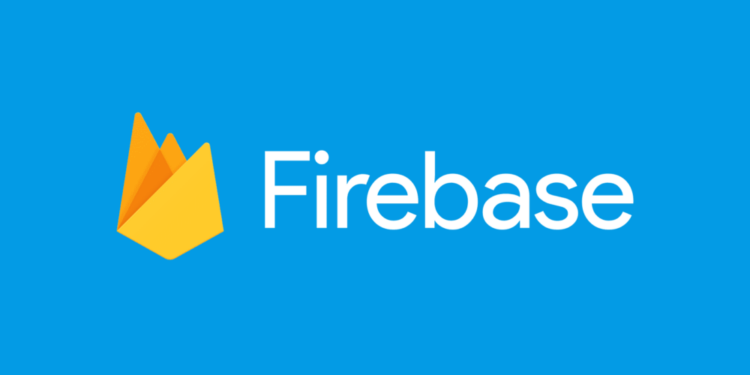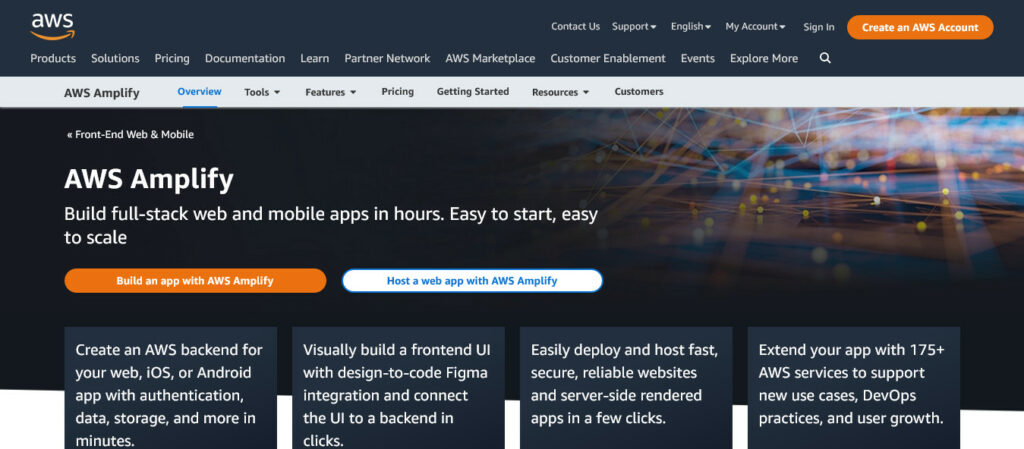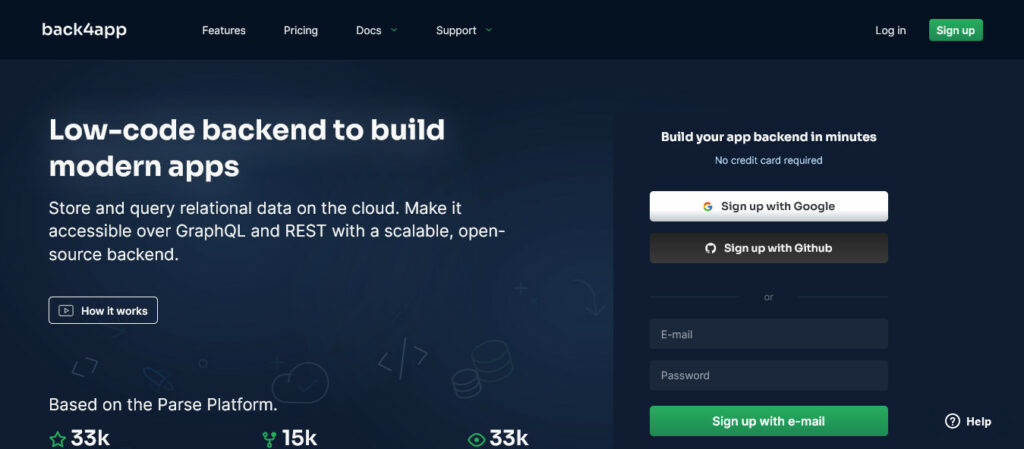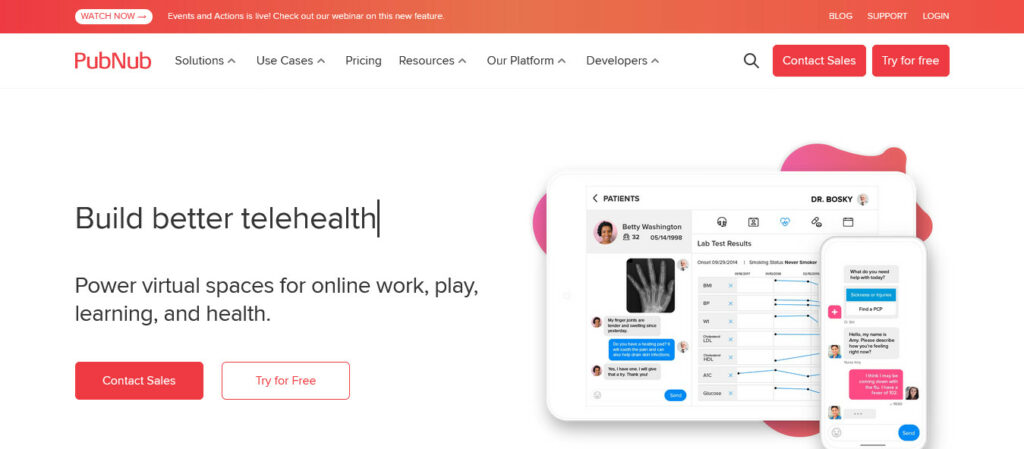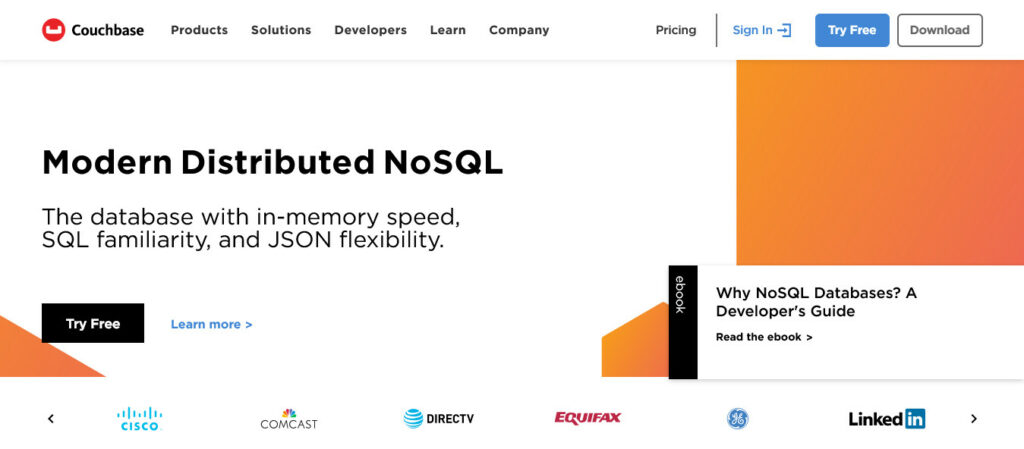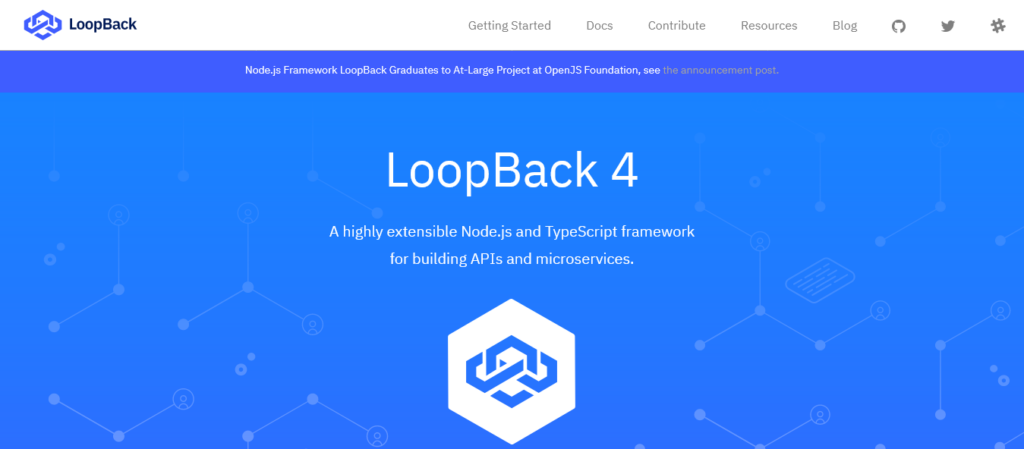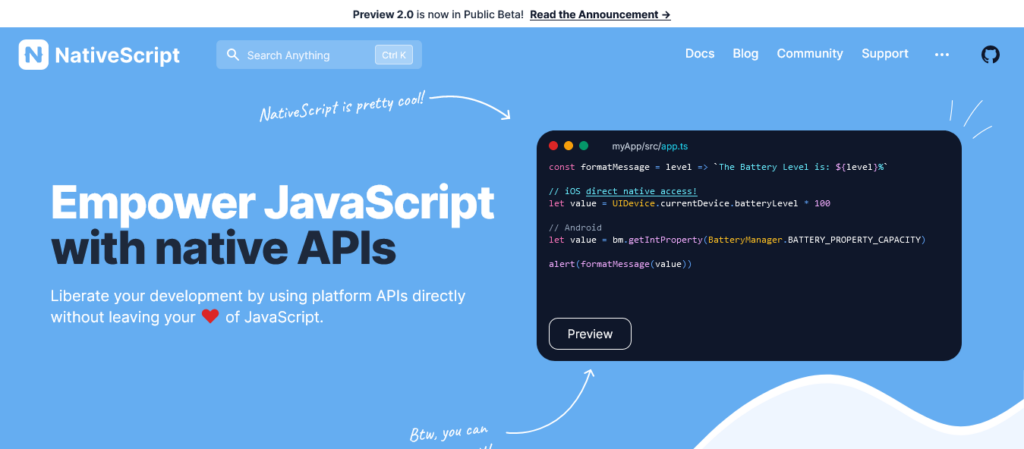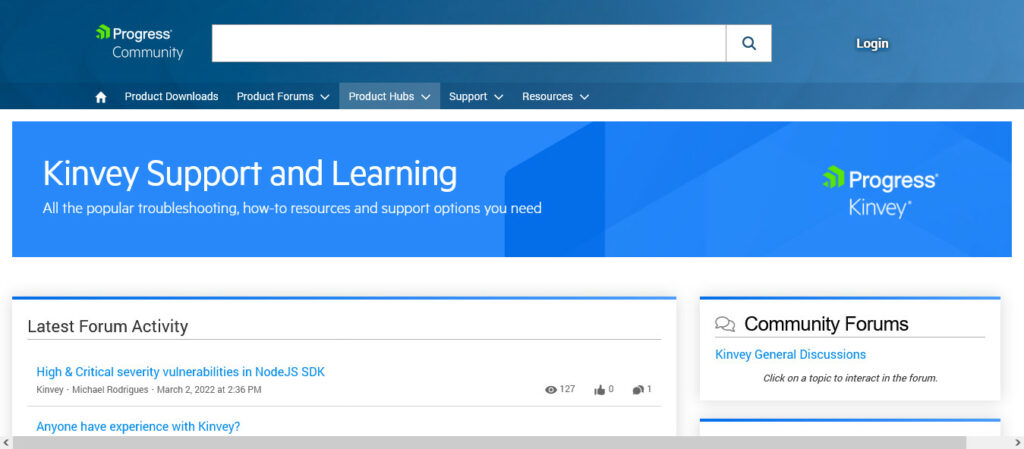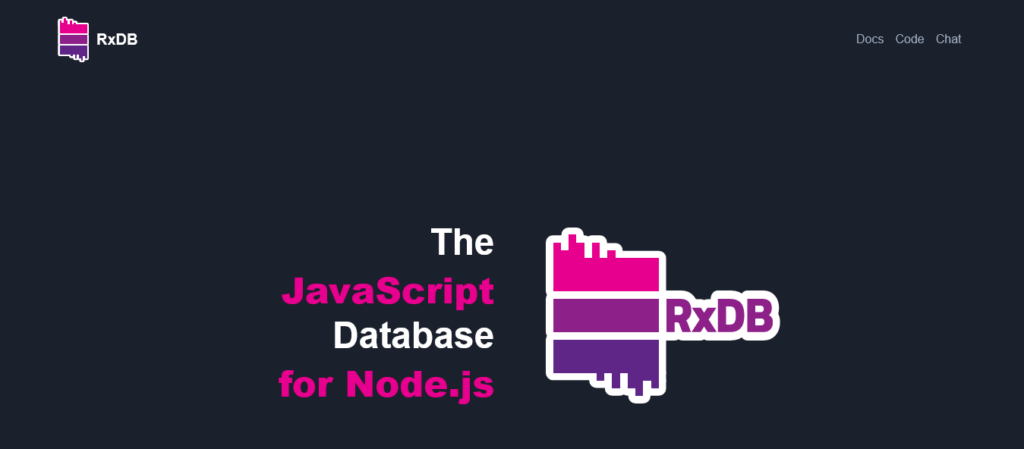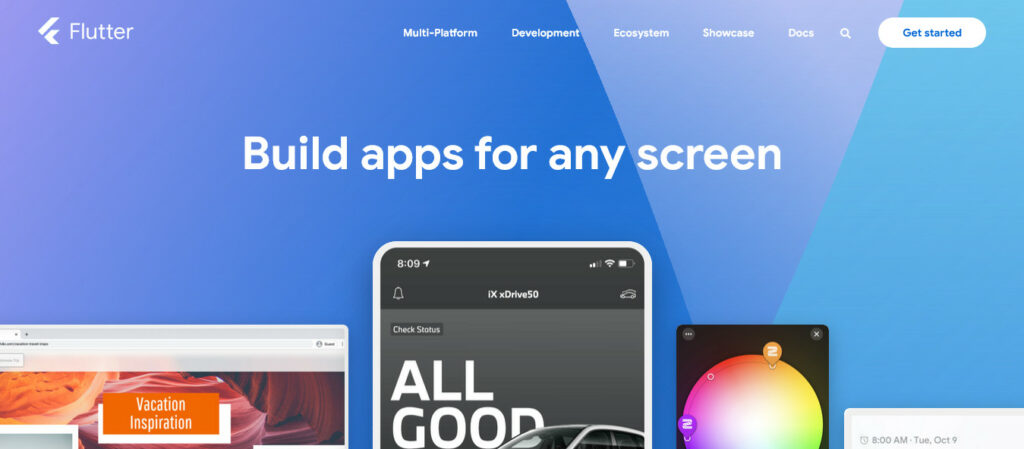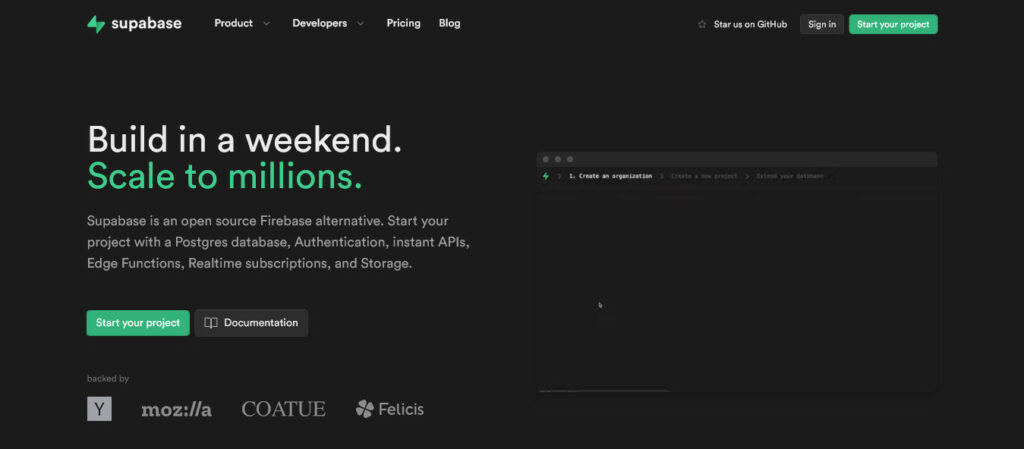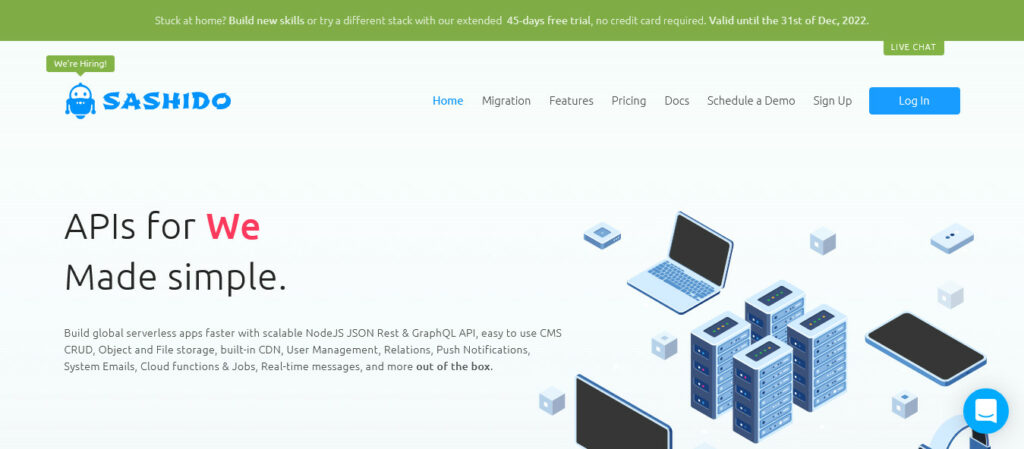Firebase Alternatives 2024 To Try: Firebase is a great platform for building and running apps that work well. You can use it as a developer to build, improve, and grow a web and mobile apps. It helps it easier to build apps, get them out to the public, monitor an eye on them, and interact with app users. Firebase is a technology that lets web, OS X, Android, and iOS apps be made quickly. It lets developers make web apps without writing server-side programming code. In addition, Firebase comes with powerful tools that make building apps go faster.
It has features that stand out, such as hosting, file storage, a real-time database, notifications, authentication, push messages, analytics, and push messages. Since it is hosted in the cloud, you, as a developer, can easily scale it up or down on demand. But Firebase has its limits as well. It only runs on Google Cloud and can’t be used anywhere else. Since it isn’t open source, you can’t change its code and make it fit your needs. Also, only some of its services are free to start.
Firebase has vendor locking, and it takes a long time to do a query. It doesn’t have GraphQL APIs, and since it’s a subdomain of Google, it may not be available in many other countries. You can only access the NoSQL database with Firebase. Because of these things, you may want a Firebase alternative that fits your app development needs better. So, we’ve put together a list of the best Firebase alternatives you can trust.
15 Best Firebase Alternatives Apps List
Best Firebase Alternatives Apps 2024 you can try.
1. AWS Amplify
The cloud platform for Amazon is called AWS Amplify. AWS Amplify offers services and tools for building full-stack, scalable apps that Amazon powers. Some of the tools can be used together or on their own. You can set up app backends and connect your app in minutes with AWS. It allows you to deploy any static web app fast and manage the app’s content outside the console. The software works with web frameworks such as Angular, React, Vue, Next.js, JavaScript, and more. Fast marketing can be done on mobile platforms like Ionic, Android, React Native, and Flutter. Amplify Auth makes it easy to set up authentication, and native authorization lets you decide who can use the apps. If you want a platform that connects front ends without any problems, connects back ends fast, and lets you manage content through an easy-to-use admin user interface, AWS Amplify is the best access.
It can be used for real-time collaboration, targeted campaigns and push notifications, onboarding flows, and machine learning or AI. AWS is a great Firebase alternative because it has useful features like GraphQL, REST APIs, and an open source backend that Firebase doesn’t have. AWS Amplify has CLI plugins and user interface components, and you can access pre-built UI components, web and mobile front-end libraries, fine-grained authorization, and easy configuration. With AWS Amplify, you can create serverless apps that integrate with JavaScript front-end elements. The pricing model for AWS Amplify is “pay as you go.” This is one of the best Firebase alternatives.
2. Parse
The next Firebase alternative on our list is Parse. This open source app stack framework has powerful tools that can be used to make apps. You can deploy it on any server with no problems. It features a dashboard, APIs, file and object storage, user authentication, a database, and more. Parse’s database looks like a spreadsheet. Parse can be used on any infrastructure that runs Node.js and has a database that is either PostgreSQL or MongoDB. It lets you use Node to develop and test your app locally. Parse is an open source program that doesn’t lock you into one vendor as Firebase does. Instead, it lets you access its large community and use its framework, which is full of features, for free.
You can get email notifications, GraphQL APIs, cloud functions, social login, notifications in real-time, and REST with Parse. There are SDK JavaScript, iOS, and Android repositories for Parse. It can be hosted on-premise or on servers like AWS, Alibaba, Azure, and Google. Its backend tools let you do codes like run your custom, manage your identity, and store data. It has an easy-to-customization app foundation, and the user experience is excellent. Unfortunately, the price of the Parse Server is not given. This is one of the best Firebase alternatives.
3. Back4App
Back4App is a backend platform for common code based on the Parse software. It lets you create modern, high-end apps faster and on a global scale without managing to manage the infrastructure. The open source software features REST and GraphQL APIs, authentication, data storage, push notifications, file storage, and cloud code functions. Back4App lets you build relational data models, store and query relational data in the cloud, easily deploy your apps in the cloud, and host IoT, web, and mobile apps. This is one of the best Firebase alternatives.
Back4App is fast to use, has a multitenant environment, and works quickly and with low latency. It’s a fully managed service with customer support available 24/7. Its cache/CND is set up automatically. With this serverless platform, you can use databases that make updating and syncing data fast and easy. It has many solutions to make app development easy and integration quick. Back4App is a better Firebase alternative because it uses highly optimized storage methods. The tool lets you store data in more than one private cloud. Back4App offers a free plan, a Shared Plan starting at $25/month, and a Dedicated Plan that costs $250/month.
4. PubNub
PubNub is a global Data Stream Network (DSN) API that developers use to create, scale, manage, and connect real-time web and mobile apps and IoT devices. It’s easy to use and safe, and its streaming capabilities are well known. For example, the platform can send instant push notifications to a mobile device even if the app isn’t running. It combines playback options, streams controllers over a single connection, and sends trillions of messages. Other features and core services that stand out are scalable chat APIs, chaEngine, publish/subscribe, and PubNub functions. In addition, PubNub has a set of building-block services for real-time apps, such as real-time analytics, AES encryption, online presence detection, storage, playback, offline mobile push, access management, multiplexing, and more.
It is a good Firebase alternative because it has a simple pricing model and a separate API for managing accounts. PubNub’s client API is available in several different programming languages and technologies. It can also flexibly work with custom apps. It’s a real-time platform to talk to people with alerts and notifications. PubNub will be a great partner for your whole backend service if you need an in-app chat service. The basic plan of PubNub is free. The Starter Plan costs $49 a month, and the Pro Plan is based on a quote. This is one of the best Firebase alternatives.
5. Kuzzle
Kuzzle helps you with your digital needs, such as collaboration, messaging, secondary screens, single sign-on, and more. It is an open source platform that works across industries and technologies and helps you build IoT, web, mobile apps, and middleware. Kuzzle comes with a scalable server, a multiprotocol API, an administration console, and plugins, including real-time pub/sub for advanced operations. In addition, Kuzzle gives you fast search, data sync, and geofencing. It is a ready-to-use stack that you can deploy on-premise. Also, it has great backend features that you can extend with any framework you want. This is one of the best Firebase alternatives.
It gives you a fast and easy way to make apps while your team works on the business logic and user interfaces. This software has everything you need with features like native development, API, search within the platform, and database integration. With real-time collaboration, compatibility with multiple devices, geofencing, and other features, you can give your clients a modern, high-end experience. The Kuzzle SDKs and other development tools can be used to access the Node.js backend’s protocols, storage, search, and API. Kuzzle is scalable on-premise, as a cloud service, with IoT hardware, Linux/Docker infrastructure, and horizontally on the intranet. Kuzzle is one of the best Firebase alternatives because it has a real-time API and features multiple protocols. It has three pricing plans: a 500-pound-a-month Starter Plan, a 1,000-pound-a-month Business Plan, and a custom-made Premium Plan.
6. Couchbase
It has a distributed server that is made to work with modern apps that are mission-critical. Couchbase’s engagement database is NoSQL, document-oriented. Couchbase is open source and runs directly on the device while managing the device and server in sync. It can be used in IoT and mobile environments. It was built to help interactive apps with many users manage data with low latency. The platform has analytics, a unified programming interface, a database engine, search, query, memory first architecture, and more. It gives you access to powerful tools, like APIs across connectors and multiple programming languages, that make building apps and getting them out there quickly and easily. This is one of the best Firebase alternatives.
As a developer, you can give your apps more intelligence by using the right data access patterns, integrating data into their ecosystems, and using full-text search. The analytics part has a strong parallel query process that helps developers efficiently run long-running queries. It helps with the problems that come with ad hoc analytics on a single dataset and makes it possible to make scalable and responsive apps. Couchbase’s database quickly scales up to share the load by adding RAM, disk space, and CPU power. Because of this, it is the best Firebase alternative that can grow with your business. It has excellent performance on-premise, in a container, as an edge service at scale, and in the cloud. Couchbase has three pricing plans: the Basic Plan, which starts at $0.32/hr per node, the Developer Pro Plan, which starts at $0.40/hr per node, and the Enterprise Plan, which starts at $0.65/hr per node.
7. LoopBack
LoopBack is another framework for Node.js that will help you make scalable APIs faster. It can be changed easily and runs on top of the TypeScript framework based on the Express web framework. You can create end-to-end REST APIs fast with LoopBack and connect to backend systems like SOAP or REST services and databases. It enables you to build models based on a schema or define models and develop connections between them. Its new core has great extensibility and flexibility, which lets you solve business problems like making services and products bigger so that developers who use APIs can reach more people. LoopBack makes it easy to make REST APIs with little coding and gives developers a consistent way to design and implement APIs, including REST layer and ORM models.
It is better than Firebase because it can connect to old systems. It works with multiple databases and lets you define your schemas and endpoints, write those endpoints in JavaScript, and use the defined schemas and endpoints without generating code. By automating schema and endpoint validation, you can ensure that your teams can easily review endpoint changes without digging through JavaScript. This will help them stay consistent. LoopBack can help you create your framework or platform, build standard libraries with components that can be used more than once, and integrate them into databases, web services, and other platforms using connectors. On the website, there is no information about prices.
8. NativeScript
It enables you to use JavaScript and CSS libraries to develop native mobile apps from a single codebase. NativeScript is open source and builds apps with TypeScript, JavaScript, or Angular. NativeScript is based on the logic that you can write an app once and run it everywhere, and the apps you build can be used on mobile devices. It renders with the help of controls and app programming interfaces (APIs), so you can make more complex apps than with a hybrid approach. Firebase doesn’t give you any built-in themes to work with, but NativeScript does. It gives you the flexibility and customization you need to build apps that work well on different devices.
It has plugins that let you use unique features on the device or platform. For example, with the built-in camera plugin, you can take photos with your device’s camera. You can add platform-specific tools and the NativeScript social sharing plugin to give your site social sharing features. It’s a great software that lets you build apps like social networking, live fees, games, music, video streaming, chat, geolocation, maps, and more using different plugins. Of course, there needs to be price information given.
9. Kinvey
It is a serverless cloud platform with a low code and no code studio, data integrations, legacy system acceleration, and a full app backend for building web, mobile, and chat-based apps for iOS, Android, Windows, and the web. Kinvey’s flexibility lets you create multichannel apps, set them up, and scale them. Kinvey can set up most backend components and cloud services. It helps developers host codes with its logic. Kinvey works with Xamarin, .Net, JavaScript, native, Cordova, and other app development frameworks. It comes with tools for control, governance, and compliance that businesses can use to keep their data safe.
You can use Kinvey to build and design cross-platform HIPAA-compliant mobile apps based on what customers want and need. Kinvey’s operational intelligence tools help you manage end-user support, compliance reporting, security, and usage analytics. Kinvey offers integrations with software like SAP, Oracle, Salesforce, EHRs, Microsoft, and more. It also supports enterprise identity solutions like Open ID, SAML, and Active Directory. With the Kinvey, you can access multiple authentication systems, unlimited data storage, and syncing between the backend and apps. Unlike Firebase, Kinvey has a modern, patented, serverless architecture that scales to any workload and keeps data private. On the website, there is no information about prices.
10. RxDB
RxDB, which stands for Reactive Database, is a NoSQL database for JavaScript apps like electron apps, hybrid apps, progressive web apps, PWAs, and websites. With Reactive, you can query about the current state and subscribe to all changes to the state, such as the result of a single document or query field. RxDB has great performance benefits, such as making it easier to make real-time apps with interfaces. RxDB features real-time queries, schema support, multiple windows and tabs, replication, encryption, and a key compression module. It lets you copy data from your server to your customers’ computers. RxDB has modules that allow real-time replication and endpoints that work with CouchDB and GraphQL. While RxDB gives you real-time queries. On the other hand, queries in Firebase are often slow.
11. Kumulos
It is a powerful mobile app management platform for developers. Kumulos has a complete white-label, multitenant solution that enables app development fast. Kumulos puts all of the technical and business mobile app performance management in one place to help businesses do better. Its features include crash reporting, mobile backend as a Service (mBaaS), push notifications, app store optimization, agency console, reporting and analytics, and a client portal.
Kumulos is simple and safe to use. It lets you connect your client-side app to the backend’s cloud storage, making it easier to manage your own backend infrastructure. With features like granular permissions and branded messaging apps, it’s a great Firebase alternative. Your clients can monitor campaigns and see how well they are doing. It’s all about push notification platforms and getting close to clients. You can be sure to get reports on time and also improve how well the apps make money. In addition, you can optimize your apps in the app store with in-app messaging. Finally, Kumulos is a pay-as-you-go service, meaning you only pay for your use.
12. Flutter
With Flutter, you can develop native mobile apps with just one set of code. It is a Google-related open source framework. With Flutter, you can develop apps fast and make sure they work well and look the same on all platforms. Compared to Firebase, Flutter is built up of widgets, which include styles, scrolling, and fonts. It has a growing helpful community, and its documentation and resources are of high quality. It’s a set of tools from Google that enables you to develop the most beautiful native mobile, web, and embedded apps. You’ll have access to all the tools, documentation, and libraries you need to create apps that work on multiple platforms. Flutter is the best way to build native interfaces and high-end ship features that focus on the native end-user experience. Flutter is free and can be used on any operating system, including Google Fuschia. Use of it is free.
13. Supabase
Another open source platform that you can use to make a backend in minutes is Supabase. It gives your current PostgreSQL database RESTful and real-time APIs without you having to write a single line of code. Well, you can start your projects with authentication, instant APIs, a PostgreSQL database, real-time subscriptions, and storage. It takes care of the security of your business and has features like logins and sign-ups to protect your data safe. With Supabase, it’s easy to organize, store, and share large files like images and videos. You can also write down your cron jobs and codes without deploying or scaling servers. This is one of the best Firebase alternatives.
You’ll be able to develop apps locally and then scale up when your business grows. Compared to Firebase, it is easy for everyone to use, even users who need to be tech-savvy. The software is fast and reliable, so you can use it to manage your data well. With this platform, you can use WebSockets to listen to changes in your PostgreSQL database, query tables with features like pagination, filtering, and nested relationships, and create, delete, and change laws. Well, it can listen to Postgres’s built-in replication features, turn the replication’s byte stream into JSON, and send the JSON over the WebSockets. In addition, Supabase gives data about relationships in real time. Supabase has a free plan, a Pro plan that costs $25, and a Pay-as-you-go plan that starts at $25/project/month plus usage costs.
14. SashiDo
SashiDo allows you to build serverless APIs quickly using scalable Node.js, REST, and GraphQL APIs. The SashiDo builds user-friendly built-in CDN, CMS, user management object and file storage, CRUD, relationships, system emails, cloud functions, push notifications, and more. With Sashido, you can automatically scale your app based on your needs. The platform lets you build mobile and web apps using any framework and SDK you want. It will also put your custom business logic on your server whenever possible. Using WebHooks, you can integrate tools from other sources. In addition, it gives you endless ways to add more features to your app. Unlike Firebase, all of SashiDo’s features are free to use, and you can improve your apps however you want based on how you want to engage your customers. SashiDo has a pay-as-you-go pricing plan, which means you pay monthly based on how much you use the service. It starts at $4.95 per app per month.
15. NHost
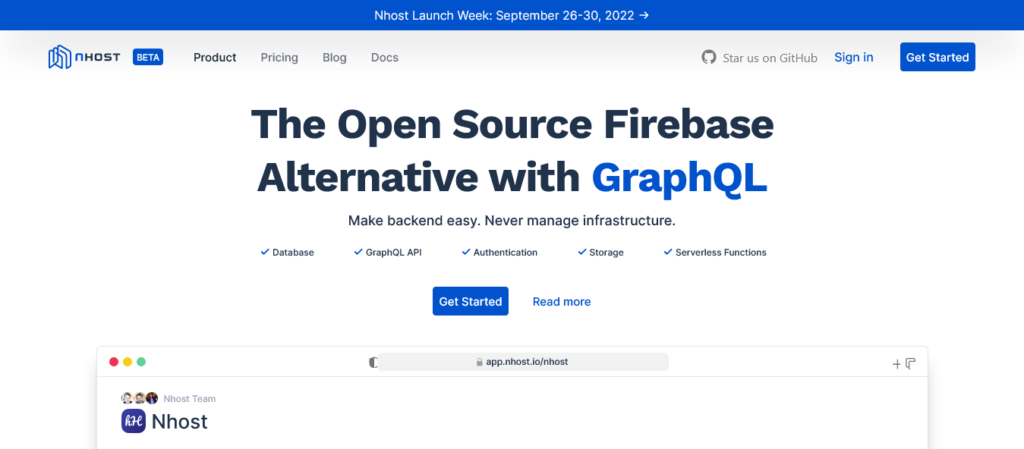
NHost is an open source platform working with GraphQL API. It lets you develop a copy of your production environment on your computer so you can test functions and manage track of any changes. The infrastructure is run on top of Digital Ocean. In addition, the Hasura framework is used to power the API in the software. NHost has a backend for mobile and web apps that doesn’t need a server. When you use NHost, you don’t have to worry about infrastructure because the platform hosts all the backend logic you need, such as events, cloud functions, permissions, and hooks. Its main features are API, storage, real-time SQL database, and serverless functions such as custom backend code with error handling and logs. In addition, you can sync data to multiple clients and define security permissions to protect your data with real-time sync.
NHost is a great Firebase alternative because it can be changed and used in more ways. In addition, NHost works well with systems other than the ones that come with it. The Hasura Backend Plus works with S3-compatible instances and lets you set up your own storage rules. It works with Google, Twitter, GitHub, Facebook, and other third-party authentication providers. Put your files in the cloud to make it easy to manage them. It lets you change the size of your images and optimize them on the fly. Your authentication flows with multiple login methods will be handled efficiently, giving you the tools you need to manage your users on the backend. Aside from the free tier, it has the Professional Tier, which costs $19 per month, and the Enterprise Tier, which is priced on a quote. This is one of the best Firebase alternatives.
Conclusion:
The best Firebase Alternatives, in my opinion, is NHost. The platform is open source and combines some of the best technologies to provide you with the ideal tools for app development. PostgreSQL combined with a paradigm such as GraphQL is what every app developer is looking for. Well, as a backend as a service (BaaS) platform, NHost was made with the user in mind. Its front end is the main thing that sets it apart and helps guide app development, while the backend is just a standard feature. With a powerful management platform like Hasura and an API paradigm like GraphQL, users can do a lot of work in a short amount of time.

